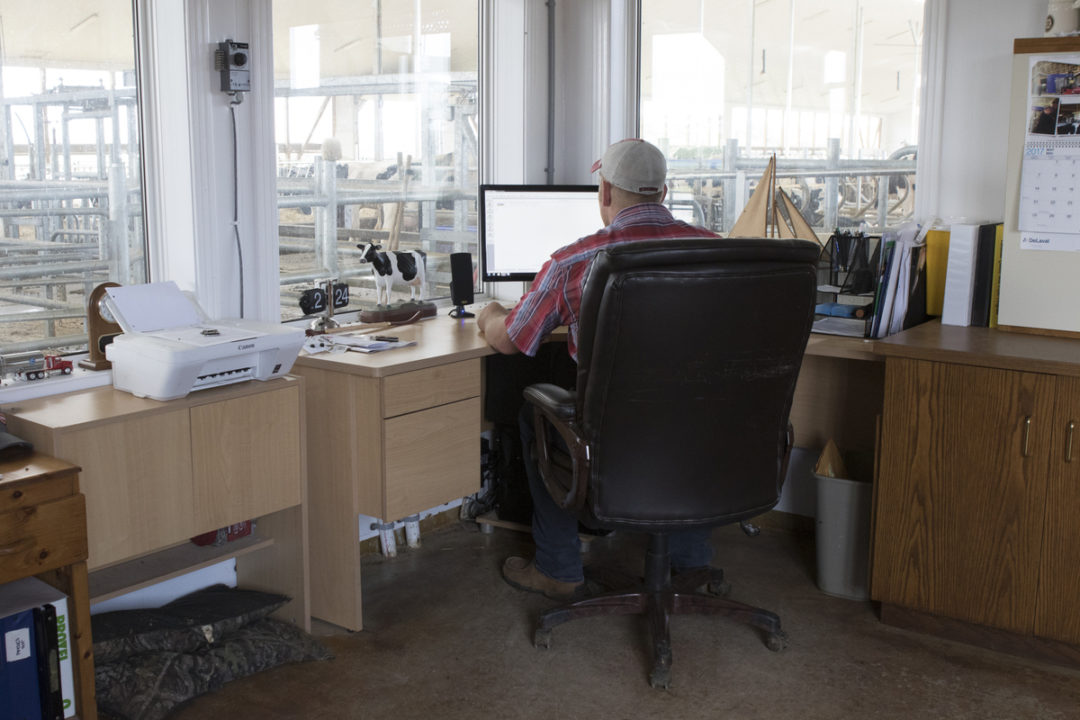There are a lot of farmers in their 30s and 40s who don’t know what their future looks like. The truth be told: 77% of farms don't have a succession plan. And this obviously has a lot to do with why only 12% of farms pass onto the third generation.
Think about this: It’s pretty hard to get your butt out of bed to build a business if you don’t know if you’ll own the business in a decade or if you’ll be crying behind the barn after an estate auction.
This lack of any clear plan for the future I witness on way too many farms. And I have witnessed what it does to farmers emotionally and mentally all too often. And we wonder why there are skyrocketing levels of anxiety and depression on family farms? Why there is burnout and lack of motivation becoming rampant?
Let’s be clear about definitions according to the Oxford dictionary:
Anxiety: A feeling of worry, nervousness or unease, typically about an imminent event or something with an uncertain outcome.
Depression: Feeling of despondency (loss of hope) and dejection.
Different statistics show that over 20% of farmers are taking medication for mental health and anxiety. But we have no stats on what this is doing to a person’s emotional health issues. How many young farmers are having a fourth beer or overeating because of the stress and anxiety caused by this succession issue? How much stress is growing between siblings caused by a farmer making tremendous sacrifices, and there is no guarantee a non-farming sibling isn’t going to eventually take all his or her unrecognized sacrifices? How many divisive arguments are being had between spouses about work-life balance when there is no guarantee the sacrifices being made will create a farming future for their kids? How many close parent/child relationships are being pulled apart by no succession plan, leading to distrust and eventually loneliness and depression?
We have help lines and government pamphlets to identify that mental health is a problem in agriculture. This is great, but we really haven’t addressed why. I believe it’s because our succession planning is based on 17th century common law, which isn’t suitable for the modern agriculture environment. Back in the '60s, when dad was 60, he’d retire because his hips were bad (or a similar health problem), but nowadays dad is getting hip surgery and farming into his 90s, which is pretty awesome to see a 90-year-old climbing into a combine. But as a result of longer years farming and holding the reins of power and control for longer, succession is being delayed by 10, 20, even 30 years. During these decades, the succession word becomes forbidden – and thus, a steadily growing uncertainty of the future which brings anxiety and mental health issues to successors. We have changed our farming technology dramatically, but the way we run the farm (dictatorship) and the way we transition equity (waiting until someone kicks the bucket) is based on 300-year-old agrarian society. This is broken and is breaking farmers.
Let’s address three facts:
- In the '80’s, American agriculture beat Russian communist agriculture systems because, simply, ownership is important, right? Yet, if you have a farmer in his 30s who doesn’t know what they are working toward, you start to adapt a similar mindset to a communist farmer. You adapt an employee, not an owner’s mindset. You start making decisions based on what is good for you and your instant gratification, not the long-term good of the business. At some point, you become despondent and depressed if you worry that all your hard work is for nothing. You’re not willing to make the sacrifices to grow a business if you don’t know the future of it and your future in it. This lack of dedication has a huge impact on the farm’s strategic positioning and profitability.
- If I go to work at a software company and prove myself as a valued employee, they are going to offer me a stock option compensation package so I will put in the effort to grow the value of the company over the next 20 years. Bill Gates was the founder of Microsoft, but he didn’t grow it himself. It was by him offering a piece of the pie that quality people put their shoulders into growing his dream and making the company successful. Would quality managers have put in the effort to grow Microsoft if Bill had said, “Work for me for 30 years for a fractional wage of what you're worth and trust me, I’ll be nice to you?” No, of course not. But, sadly, this sounds too much like how farming with family is.
- Managers with stock options worked their asses off to grow Microsoft because they believed the business plan of the company would result in the business being successful within a decade. The plan was written down and transparent. Bill Gates didn’t tap his head and say, “It’s all up here.” He had to prove to his managers what the vision of the company was. They decided it was feasible and made the sacrifices necessary to implement it into reality. If your farm doesn’t have a realistic plan on how you are going to survive probable risks such as periods of time when milk prices are $14 per hundredweight (cwt), how can anyone believe the business has a future?
You have to have transparency to create hope and ownership in any business. Farming is no different. This rampant anxiety we are experiencing on family farms is directly related to this. Anxiety is by definition not knowing the future. This itself is the problem. We are failing to plan, thus planning to fail.
The simple, overlooked solution?
If you have a solid plan everyone agrees to, you won’t stay up at night worrying about the future.
I’m not saying this needs to happen on the first day the kid comes home from college, but rather after he or she has proven himself or herself to be management material (they have farmed 10,000 hours or full time for three years and given it 110%), a written plan should be drawn up. And, if those 10,000 hours were only to prove that the potential successor found farming isn’t truly their passion, that is all well and good and just as important and worthwhile for the kid’s future, let alone the future of the farm.
Every farm needs a strategy that is agreed upon by all family members on how the farm is going to be financially successful over the next 30 years (business plan) and how, over time, the successor can earn equity (succession plan) if they contribute to the growth of the farm by investing their time and talents. I am not advocating gifting any assets to the successor, but rather there should be a common understanding between parents and farming kids (and non-farming kids) on how the farm kids involved in day-to-day operations have the opportunity to earn ownership in the company over the next 30 years. There should be a clear and transparent understanding between farming and non-farming siblings on how the farming sibling can buy out ownership interest in the farm after both parents' deaths from their non-farming siblings over a gradual period of time in a way that is both fair to the non-farmer and the farm itself. Estate auctions shouldn’t happen unless no one is farming.
This strategy doesn’t need to be longer than one page, and the simpler it is, the better. But it needs to be written down and signed off by everyone within the family. If anyone has a disagreement, then figure it out upfront when the kids are in their early 20s … not 45 years old and discussing it at a hospital.
Look at it this way: If you have Type II diabetes, get diagnosed and get medicated. No-brainer. However, we are spending too much emphasis on the giving of medication, rather than fundamental issues of diet and exercise which, in most cases, would prevent medication from even being needed. Again, no-brainer. Same with anxiety medication.
Instead of handing out medication at the doctor’s office, we need to address the root issue from where so much of our anxiety and depression on the family farm lies: indecision and lack of transparency.
Planning for the future brings transparency. Transparency kills anxiety.







